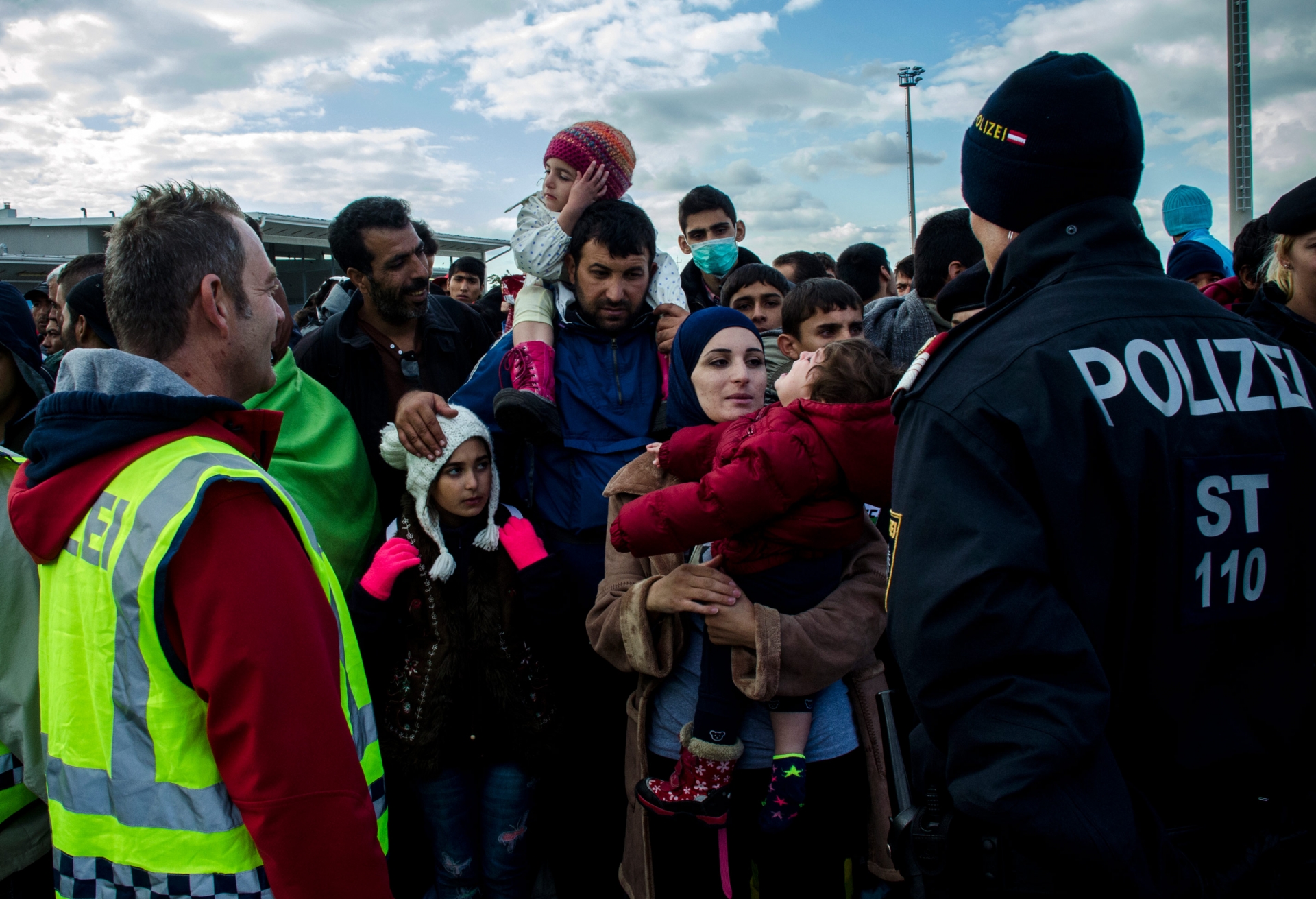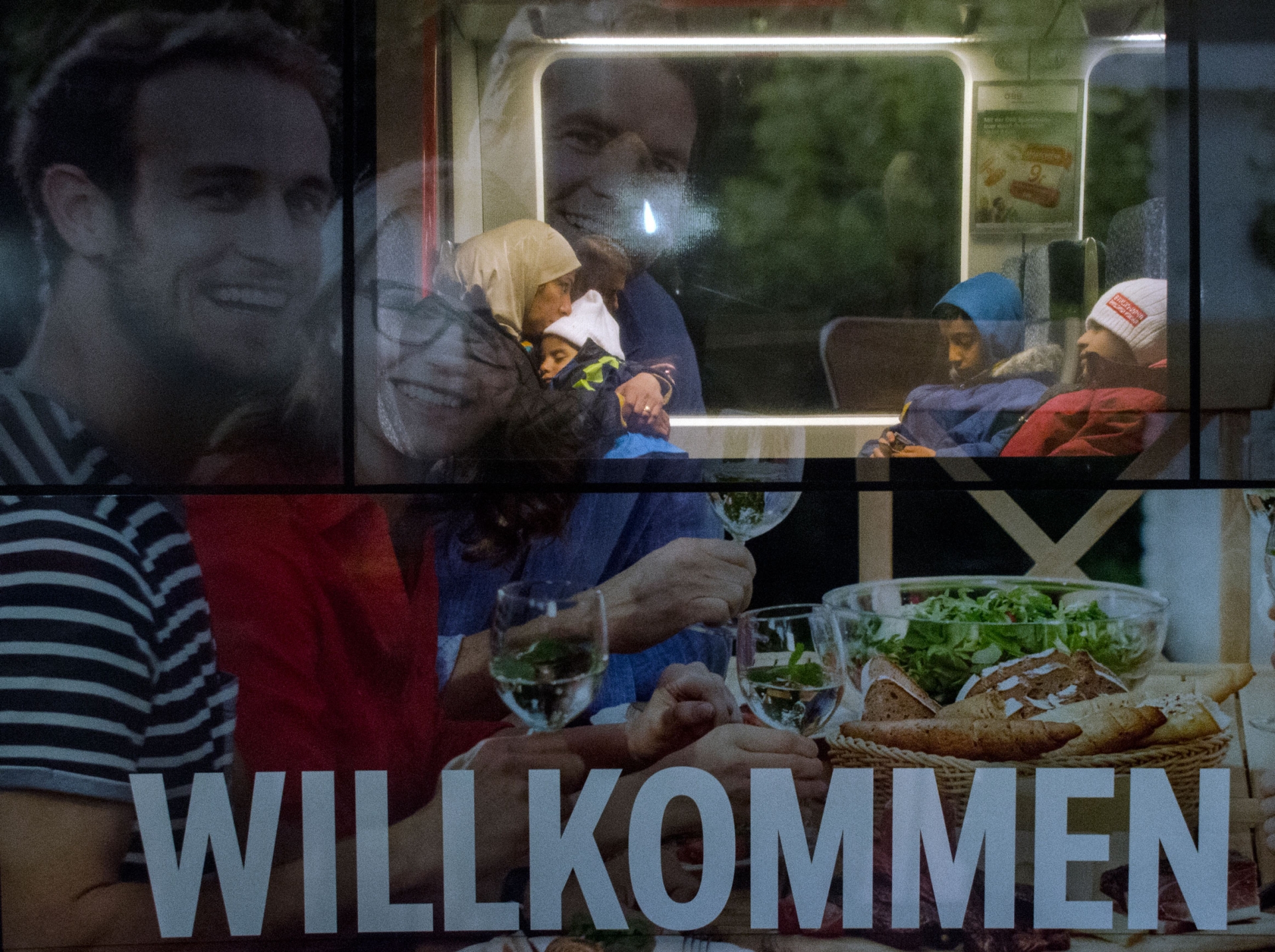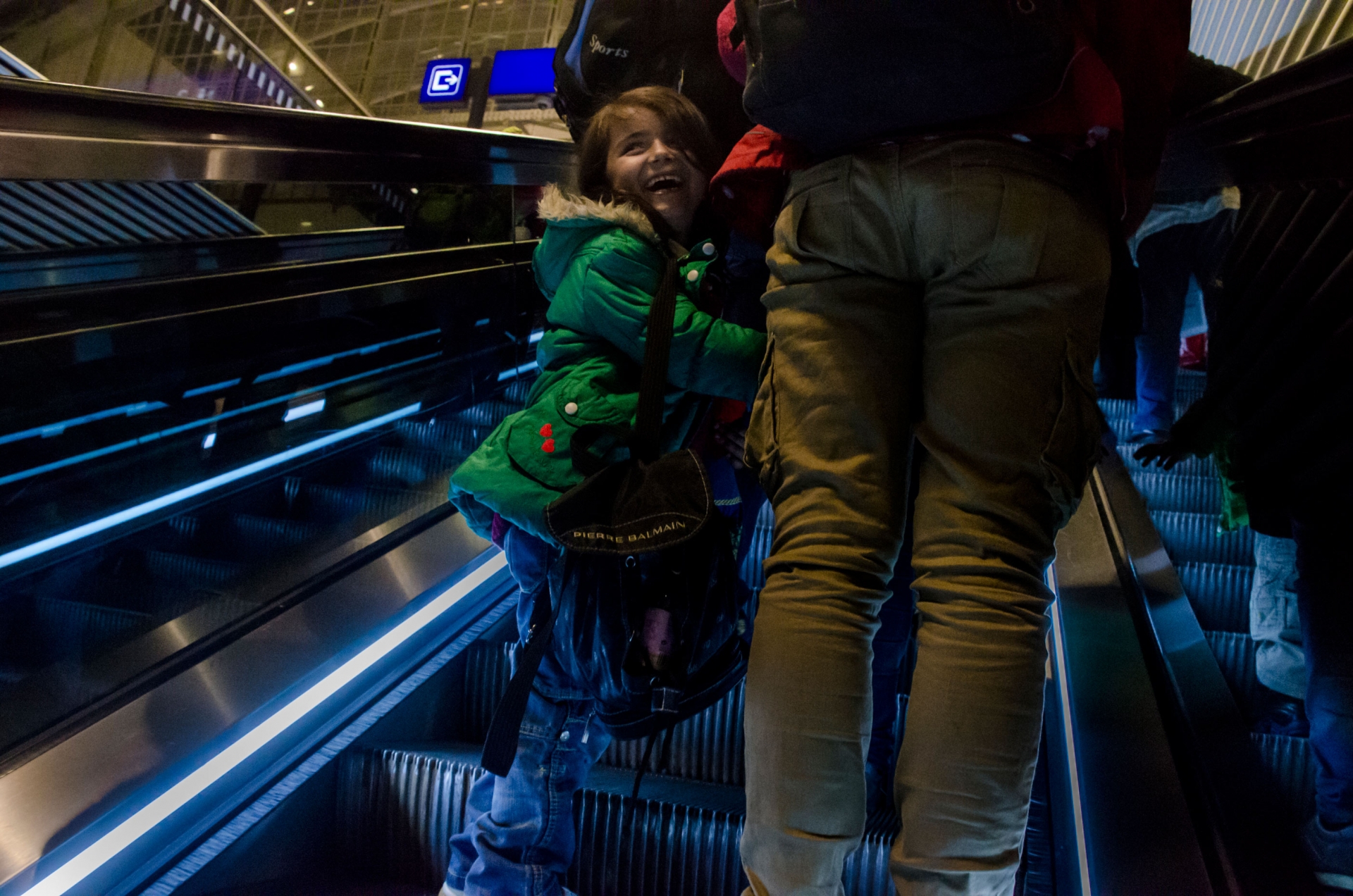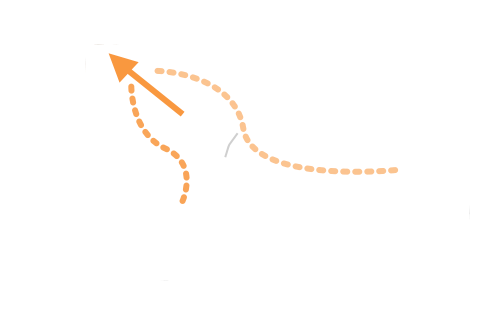“Welcome to Europe”
By: Javier Bauluz
“Welcome to Europe. Welcome to Austria,” says a smiling policeman. The Syrian family looks surprised. It’s the first time since they started on their journey that a policeman has smiled at them, instead of shouting and shoving them or treating them like animals.
“Go over there, please,” the agent tells them in English, pointing to a plaza full of people. The father of the family turns to the journalist and says, “He said ‘please,’ and he doesn’t treat us like idiots or animals. Maybe this is really the Europe we dream of.”
A long line of new buses awaits, motors running. The hundreds of refugees who just arrived from Hungary wait patiently in line next to a fence and a line of police who chat with them. There are no shouts, no tension. Everything is relaxed, friendly. The police operation works like clockwork and the refugees board the buses without rushing or shoving.

A girl dressed like Little Red Riding Hood looks at her sister, who blows soap bubbles while her father shows his gratitude for the gifts, a hand over his heart and eyes that smile.
The refugees again allow families to go first, and the police call them to board first as well. A man on the shoulders of a friend starts to sing and dance. All the Syrians around him start to celebrate and sing with him. Smiling, and finally happy and relaxed.
One official approaches the journalists and greets them in English. He asks where they are from, and after they identify themselves with their police accreditation he asks if they need any information and goes on to explain the procedure.
A few miles away the buses stop in Nickelsdorf next to a group of volunteers who form a human corridor handing out pastries, fruit, juice, chocolate and other food. An unusual display of institutional logistics is also there, with doctors, ambulances, the Austrian Red Cross and dozens of police who kindly help the refugees.
A young couple steps off a bus with a baby, a little girl and two small backpacks. Ten minutes later, they are literally surrounded by new belongings – stuffed animals, shoes for the children, chocolates, blankets, winter clothing and a myriad other things as they eat plates of rice, probably their first serving of hot food in many days. Between mouthfuls, they cannot stop thanking the elderly women who constantly approach them with new gifts.
A used-clothes market is operating in the back of the plaza. Men and women try on shoes, boots, coats and shirts, helped by smiling and patient volunteers. But the biggest attraction is clearly the big pot of steaming rice, which is replaced when it empties out every few minutes.
A middle-aged Austrian man hands out the rice with help from his preteen son and daughter. They also offer hot drinks. Every once in a while, the two children deliver cups to the refugees in line for the next train to Vienna. With a smile, as well as the shyness of her age, the girl offers a cup of hot tea to a Syrian woman who looks at her with surprise, joy and gratitude. The connection between the two overwhelms the journalist, who walks away and later approaches the father to thank him for what they are doing. But the words don’t come out. The man gives him a hug. And the two go on with their work.
Compassion, which disappeared during the journey, has returned in Austria, while the constant xenophobia the refugees suffered appears to have gone up in smoke. Also gone are the tired and anguished faces that the journalist saw during the journey through Greece, Macedonia, Serbia and Hungary. “It seems we’re finally in Europe,” says a young Iraqi.
Night falls and it’s cold waiting in line, but laughter eases the impatience to board the next train, which quickly and efficiently delivers thousands of people to Vienna.
A new train arrives. It’s decorated with large banners. “Willkomen,” says part of the text, flanked by large images of smiling blond children seated at a table. The photojournalist grows desperate when the image is repeatedly blocked by the opening and closing of an automatic door as volunteers enter and leave with bottles of water and something to eat for the happy but tired refugees. A mother with two children and a baby finds a seat framed by the colorful banner. She finally sits, and hugs the baby. The camera registers the precise instant the journalist has been waiting for.

VIENNA
Two children arrive with toys in their hands. They raise their arms. “These are for the refugee children,” says the blonder of the two. The volunteer smiles and talks to the mother, who has a suitcase full of clothes. “We can’t take more toys. There’s no place. We’re overwhelmed with the number of people coming to donate all kinds of things.” Another volunteer accepts a shopping cart loaded with children’ clothes from a woman and her son. “They will need them more than I do.”
An elderly woman arrives, with two suitcases she can barely drag. Several veiled women donate packages. Hundreds of people turn up out of nowhere, carrying packages, suitcases, bags full of stuff they want to donate to the new arrivals. Dozens of volunteers – not enough – work hard to identify and organize the donations in a rear area of the Vienna train station.
Young people walk around the platforms with signs on their chests in Arabic and English that say, “I speak Arabic. If you need help, please tell me.” Three young Arabs hold up another sign. “Many thanks for your help. We will never forget it.”
The trains to Germany leave one after another. Boarding one, the journalist sees hundreds of people, well-dressed, smiling and happy. An image that contrasts brutally with his memories of the more than six weeks accompanying the refugees on their journey.
Joy soon gives way to fatigue, and most are sleeping when the train reaches Munich. Only a group of policemen meet them at the station and lead them, politely but firmly, to another train with an unknown destination.
After long hours of travel toward an unknown destination, the train finally stops in Frankfurt. Everyone gets off, confused, not knowing what to do or where to go. There’s no one waiting for them. After the first doubts, they spread out and mix with the thousands of people walking through the modern terminal on their way to work. “Welcome to Europe.”
It is six in the morning and the journalist, exhausted after so many weeks of travel, realizes that his body and mind have nothing more to give. He has a coffee and searches for a cheap flight home. Three hours later he boards a plane. After takeoff, he reviews the latest photos on his camera. He smiles when he sees a girl, her hand in her mother’s, laughing on her first-ever escalator.



